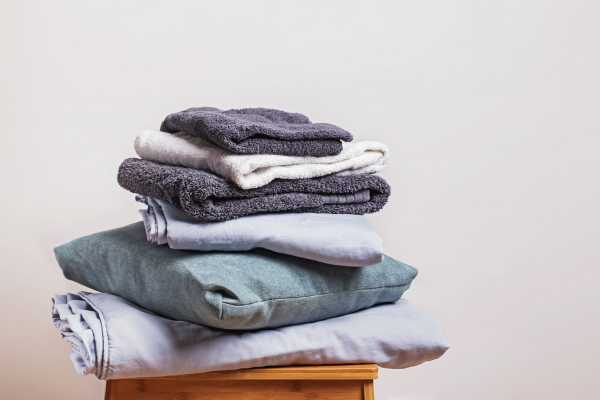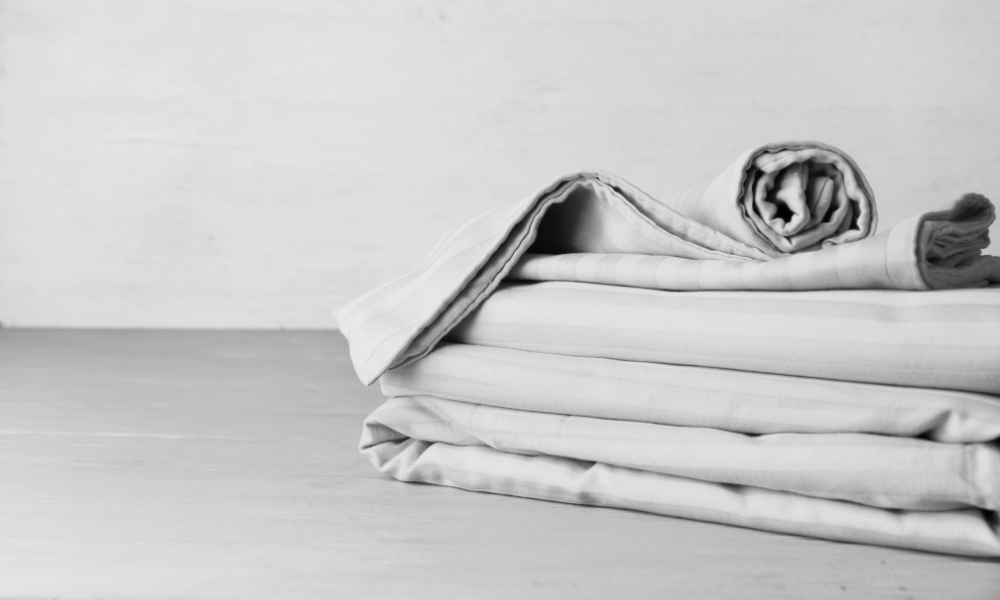Understanding the significance of comfortable bedding is crucial for a good night’s sleep and overall well-being. The texture and quality of our sheets play a pivotal role in this comfort. This introduction delves into the art of How To Soften Cotton Sheets, a key element in transforming your bed into a haven of relaxation. By exploring various techniques and tips for softening cotton, we aim to enhance your sleep experience, ensuring your bedding is not just a necessity, but a luxury.
Understanding Cotton Sheets

Cotton sheets, revered for their comfort and durability, come in various types, each impacting sheet quality distinctly. Egyptian, Pima, and Upland cotton, among others, offer different textures and longevity. Thread count, often misunderstood, plays a critical role in softness. Contrary to popular belief, a higher thread count doesn’t always mean superior quality. It’s the balance between thread count and fiber quality that determines the sheet’s feel and durability, making an informed choice essential for the perfect sleep experience.
Initial Care for New Cotton Sheets

Proper initial care is essential for new cotton sheet to achieve optimal softness. Washing them gently in cool water and choosing a mild detergent can help preserve their quality and feel. When drying, opt for a low heat setting or air dry to maintain the fabric’s integrity. Additionally, the judicious use of fabric softeners is crucial; excessive use can impair the cotton’s natural breathability and absorbency. Balancing these elements not only enhances softness but also extends the lifespan of your sheets, ensuring lasting comfort.
Natural Softening Methods
Natural softening methods offer an eco-friendly alternative to chemical fabric softeners for your cotton sheet. Adding a half cup of white vinegar to the washing cycle can naturally break down detergents, leaving sheets softer. Baking soda, used in a similar fashion, not only softens but also cleanses the fabric. For a touch of freshness, incorporating lemon juice in the rinse cycle imparts a subtle, refreshing scent while enhancing softness. These natural methods are gentle on fabrics and the environment, making them an ideal choice for conscious consumers.
Choosing the Right Laundry Products

Choosing the right laundry products is pivotal for maintaining the quality of cotton sheet. Opt for gentle detergents, preferably those specifically formulated for delicate fabrics, to preserve the natural fibers and prevent wear. When it comes to fabric softeners, moderation is key. Select a high-quality softener that enhances softness without leaving residue or reducing absorbency. For those with sensitive skin, hypoallergenic options are advisable. This careful selection ensures your cotton sheet remains soft, comfortable, and durable over time.
Regular Maintenance Tips
Regular maintenance is crucial for keeping your cotton sheet soft and durable. It’s recommended to wash them every one to two weeks, using a gentle cycle with mild detergent to preserve the fabric’s integrity. Over washing can lead to wear and tear, so striking the right balance is key. For drying, avoid high heat, as it can cause stiffness and shrinkage. Instead, opt for air drying or use a low heat setting on your dryer. This approach not only maintains the softness but also extends the lifespan of your sheet, ensuring lasting comfort and quality.
Investing in Quality Cotton Sheets

Investing in quality cotton sheets means exploring various cotton varieties and understanding their unique properties. Egyptian, Pima and Organic cottons are known for their superior softness and durability. When selecting sheet, it’s also essential to consider thread count and weave. A higher thread count often indicates a smoother and finer feel, but it’s the quality of the cotton itself that truly defines comfort. The weave, whether percale for a crisp feel or sateen for a silkier touch, further influences the texture. Making an informed choice in these aspects ensures a luxurious and restful sleep experience.
Benefits of Soft Cotton Sheets
Soft cotton sheets offer numerous benefits, significantly enhancing sleep quality. They provide a comfortable, breathable environment, conducive to a restful night’s sleep. This is vital for overall health and well-being, as quality sleep is linked to improved mood and cognitive function. Additionally, high-quality soft cotton sheet boast longevity in both softness and durability. They resist wear and tear, maintaining their comforting texture over time. This combination of comfort and resilience makes them a wise investment for anyone seeking a superior sleep experience and long-term value.
Customer Testimonials
Customer testimonials highlight real experiences with softening cotton sheet, illustrating their impact on sleep quality. Users frequently report a noticeable improvement in their sleep comfort, attributing it to the enhanced softness of their bedding. Many describe a significant reduction in sleep disturbances, leading to deeper, more restorative sleep. Testimonials often mention waking up feeling more refreshed and less fatigued, a direct result of the softer, more comfortable sleeping environment provided by these sheets. These accounts underscore the profound difference softer bedding can make in everyday life.
Common Mistakes to Avoid
Avoiding common mistakes can greatly extend the life and quality of your cotton sheets. One key error is the overuse of fabric softeners. While they can enhance softness, excessive use can lead to a buildup of residue that diminishes the fabric’s breathability and absorbency. Another common oversight is ignoring the manufacturer’s care instructions. These guidelines are tailored to the specific type of cotton and weave, ensuring the sheet retain their quality and comfort. By steering clear of these pitfalls, you can maintain the luxurious feel and durability of your cotton sheets.
How often should I wash my cotton sheets?
For optimal cleanliness and longevity, it’s generally recommended to wash cotton sheet once a week. This frequency strikes a balance between maintaining hygiene and preserving the fabric’s quality. Regular washing helps remove sweat, oils, and skin cells that accumulate over time, which can break down the fibers if left unchecked. However, over-washing can also hasten wear and tear. Using gentle detergents and following the manufacturer’s care instructions further aids in keeping your sheet in pristine condition, ensuring they remain soft and comfortable for as long as possible.
Can I use homemade fabric softeners on colored sheets?
Yes, you can use homemade fabric softeners on colored sheets, but with caution. Natural softeners like vinegar or baking soda are generally safe and can help maintain the fabric’s softness without harsh chemicals. However, it’s important to test a small, inconspicuous area first to ensure colorfastness. Avoid using too much product, as excessive amounts can affect the fabric’s texture and color integrity. Additionally, always follow the washing instructions specific to your sheet to preserve their color and quality. Homemade softeners can be a gentle, eco-friendly option for keeping colored sheets soft and vibrant.
Are high thread count sheets always softer?
High thread count sheets are often perceived as softer, but this isn’t always the case. Thread count, indicating the number of threads woven into one square inch of fabric, is just one factor in softness. While a higher thread count can result in a finer, smoother feel, the quality of the cotton used is equally important. Sheet made from high-quality fibers like Egyptian or Pima cotton can feel softer even with a lower thread count. Additionally, the weave of the sheet impacts its texture. Therefore, a balanced consideration of thread count, cotton quality, and weave is essential in determining the softness of sheets.
Will natural softening methods affect the color of my sheets?
Natural softening methods, such as using vinegar, baking soda, or lemon juice, are generally safe for sheets and unlikely to affect their color significantly. However, it’s important to use these substances correctly to avoid any potential impact. Vinegar and baking soda should be used in small amounts and thoroughly diluted in water. Lemon juice, while imparting a fresh scent, can have mild bleaching effects under direct sunlight, so it’s best used cautiously with colored fabrics. Always conduct a patch test on a small, hidden area of the sheet to ensure the color remains intact. These natural methods can be a gentle alternative to chemical softeners, keeping your sheets soft while maintaining their vibrant color.
What is the ideal drying time for soft cotton sheets?
The ideal drying time for a soft cotton sheet depends on the drying method used. If air drying, it’s best to hang the sheets in a well-ventilated area out of direct sunlight to prevent stiffness and fading. This process can take several hours, depending on the air circulation and humidity. For machine drying, use a low heat setting and remove the sheets while they are still slightly damp to prevent over-drying and reduce wrinkles. This typically takes about 40-50 minutes but can vary based on the dryer’s efficiency. Avoiding high heat and prolonged drying helps maintain the softness and longevity of your cotton sheet.
Conclusion
Key techniques for softening cotton sheets, such as using gentle detergents, natural softeners like vinegar or baking soda, and appropriate drying methods, play a vital role in maintaining their softness and durability. Following manufacturer care instructions and understanding the balance between thread count and fabric quality are also crucial. Comfortable bedding is not just a luxury, but a necessity for quality sleep and overall well-being. By implementing these softening tips, you can transform your bed into a haven of comfort, contributing significantly to a restful and rejuvenating sleep experience.
